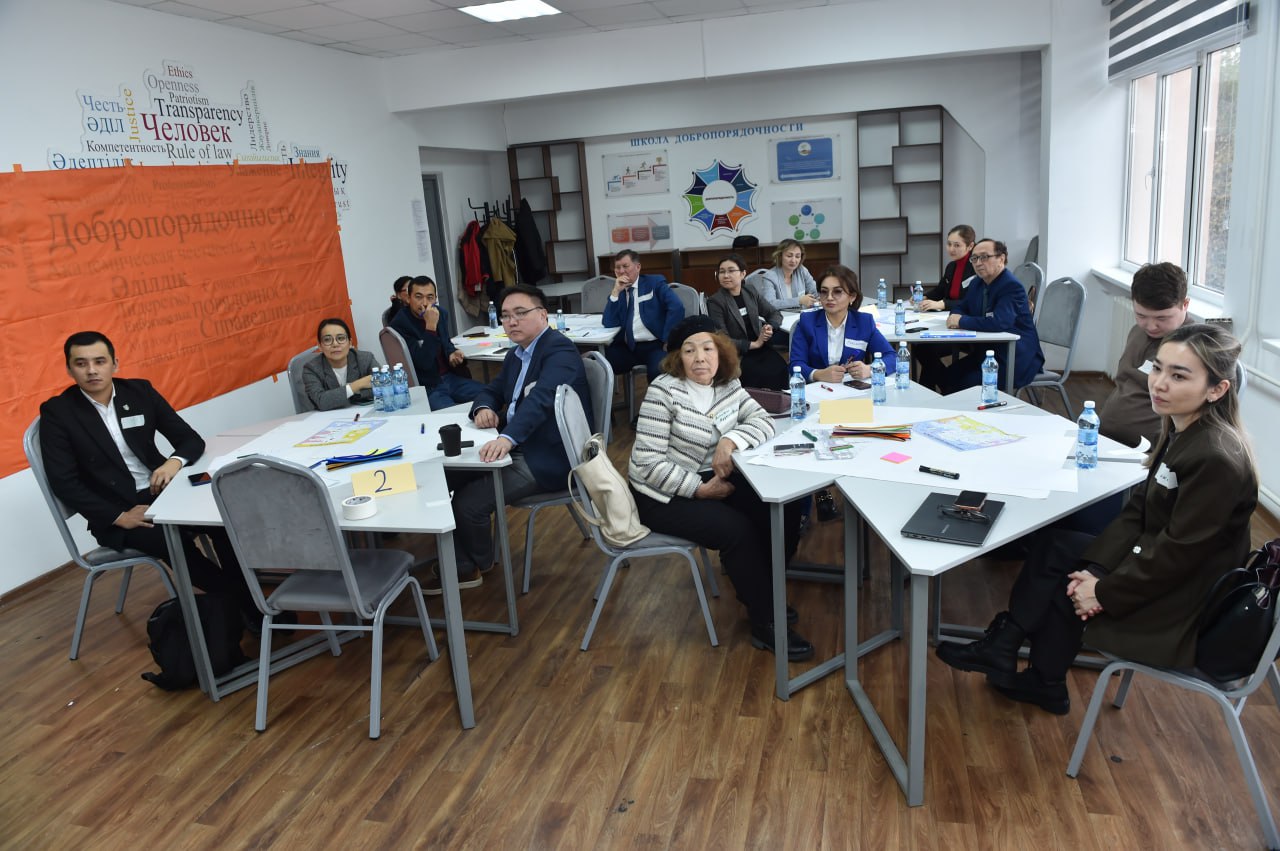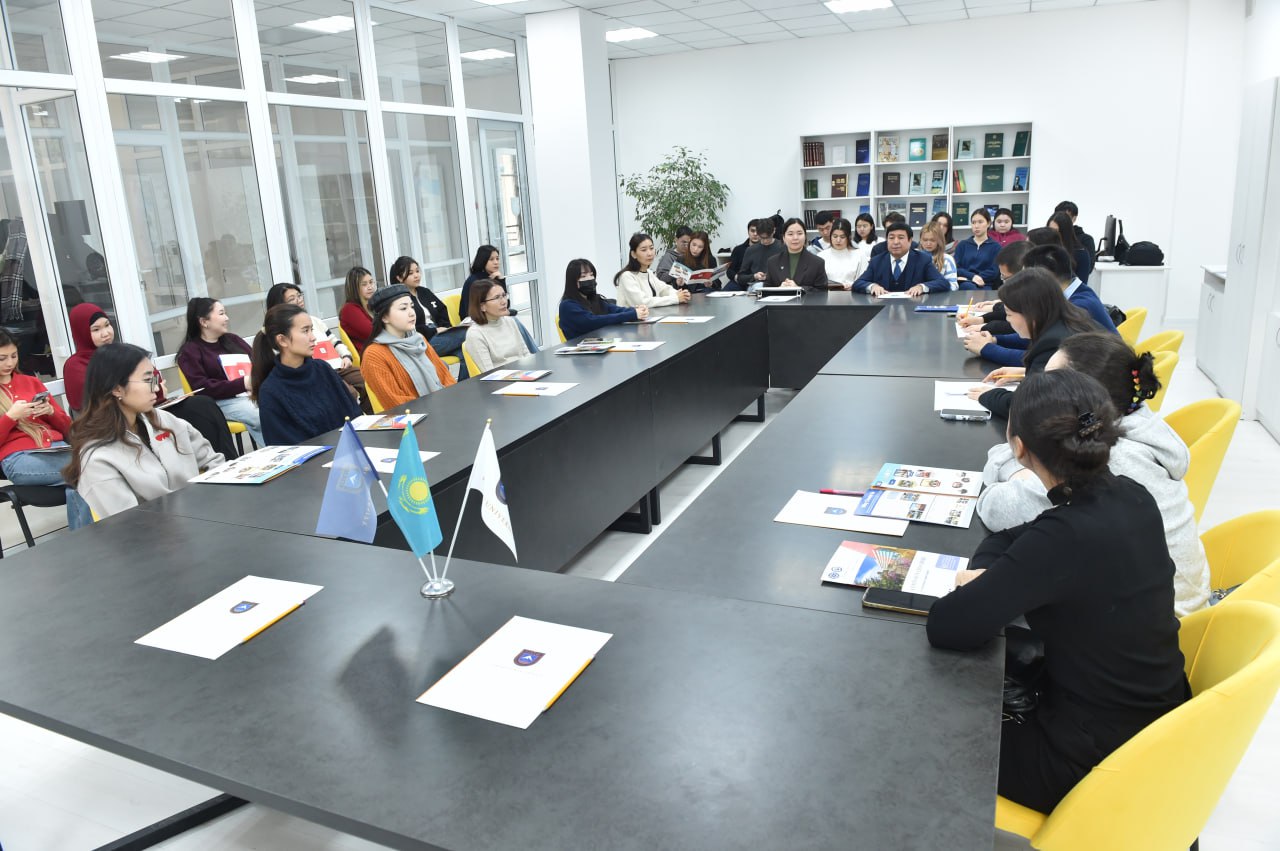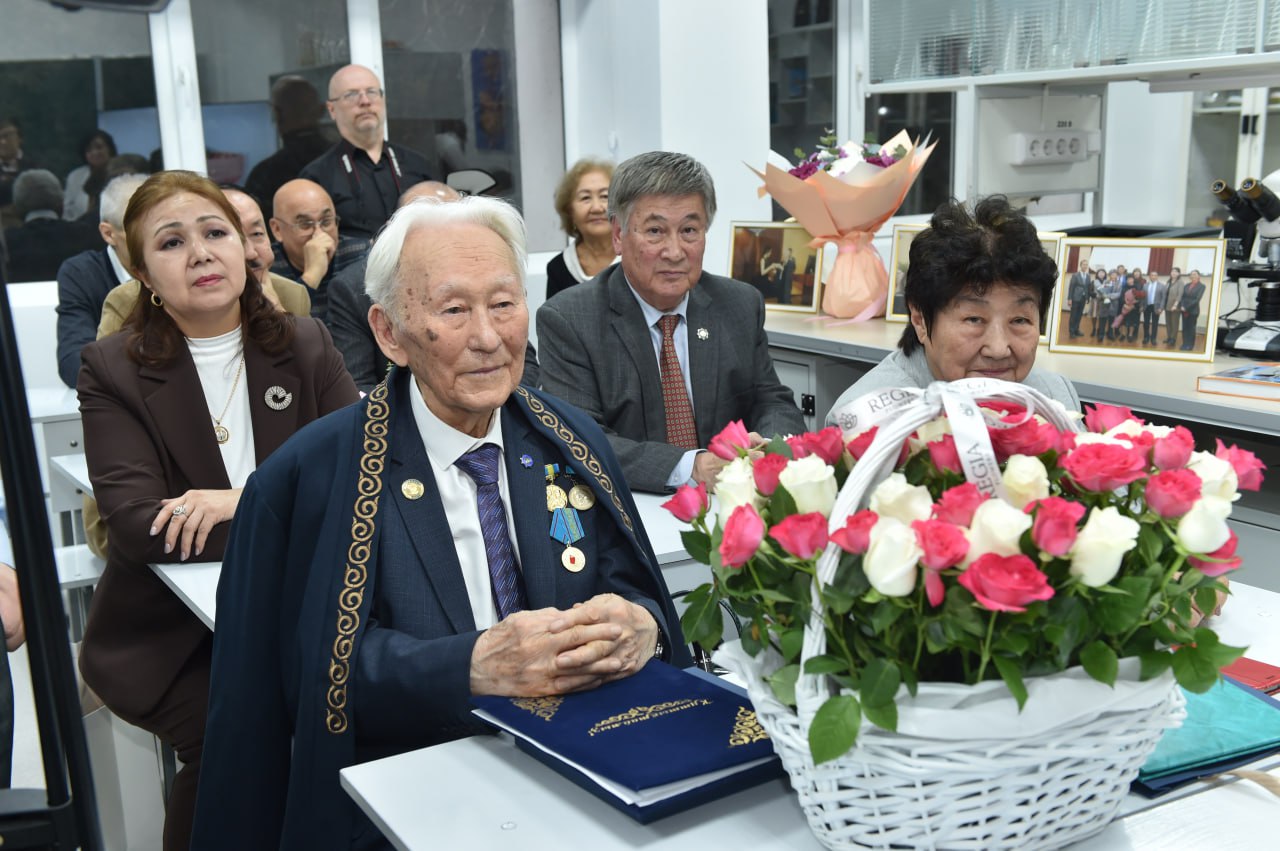Modern methods of pharabieology are analysed
Al-Farabi KazNU is hosting the Republican Scientific and Practical Conference of Farabiyeveds on the theme ‘Return of the Teacher’.
The event was organised by the Scientific and Museum Centre ‘Ғylym Ordasy’, the Almaty City Department of Education, the Al-Farabi Centre of KazNU and the Egyptian University of Islamic Culture ‘Nur-Mubarak’. The two-day event is attended by prominent Farabiyan scholars, teachers and students.
On behalf of the management of KazNU named after Al-Farabi, the participants were welcomed by Acting Deputy Chairman of the Board - First Vice-Rector Erkin Duisenov. ‘The University, for 90 years proudly bearing the name of the talented scientist of the Great Steppe Abu Nasr al-Farabi, purposefully popularises and promotes the ideas of the thinker of the East. The name of Al-Farabi is of great importance for the spiritual and moral development of Kazakhstan society. His heritage is our national treasure, embodying the deep roots of Kazakh culture, rooted in Turkic culture’, - emphasised Erkin Ermanovich.
The moderator of the conference, Dean of the Faculty of Philosophy Bekzhan Meirbayev, opening the event, noted that the purpose of the conference is to revive the heritage of al-Farabi, to create opportunities and ways for new scientific research in the field of Farabi studies.
General Director of ‘Ғylym Ordasy’ Ular Mukazhanov noted that this conference is dedicated to the 130th anniversary of the birth of Magzhan Zhumabaev and the 80th anniversary of the birth of cultural scientist, statesman and public figure Murat Auezov and the 25th anniversary of the Cultural Foundation of Turkic Peoples in Almaty.
50 years ago in Almaty within the framework of the V Conference of Writers of Asian and African countries a conference dedicated to the heritage of Al-Farabi was held. Therefore, today's conference is entitled ‘The Return of the Teacher’.
Zifa-Alua Auezova, head of the Eurasian Perspective academic centre in the Netherlands, also took part in the conference. In a video message she thanked the organisers for the invitation. ‘For me as a scholar dealing with the intellectual history of Central Asia, the names Abu Nasr al-Farabi, Magzhan Zhumabaev and Murat Auezov are of special significance,’ the speaker said. - Naturally, these are completely different personalities, both in scale and in the epochs in which they happened to live, and in the challenges of society and intellectual environment in which they were, but nevertheless, from the point of view of our family and scientific interests of Murat Mukhtarovich, the name of philosopher al-Farabi, his legacy played a huge role. His realisation of his role in the intellectual history of Central Asia and the Middle East has awakened an interest in the history of philosophy.’
Igor Krupko, Doctor of Philosophy (PhD) in History, Deputy Director of the Centre for the Rapprochement of Cultures under the auspices of UNESCO, gave a presentation on ‘Lessons from the V Conference: Describing Historical Subjectivity in the Past of Conscious Interconnectedness’.
At the plenary session with reports were also made by: attaché for education of the Consulate of the Republic of Turkey in Almaty Korkmaz Ayhan, head of the Cultural Foundation of Turkic Peoples ‘History and purpose of the Cultural Foundation of Turkic Peoples’ Ahmet Daituran, president of the National Academy of Education named after I. Altynsarin Madina Tynybaeva, professor of KazNU, pharabiologist Zhakypbek Altayev, Ph. Altynsarin Madina Tynybaeva, professor of KazNU, Farabiyeved Zhakypbek Altayev, Doctor of Philosophy, professor, head of the Department of Religious Studies and Cultural Studies of the Faculty of Philosophy and Political Science of KazNU named after Al-Farabi Ainur Kurmanalieva and others.
The work of the two-day conference continued in the framework of breakout sessions, where scholars discussed topical issues of modern Farabiyan studies, as well as heard presentations on a number of thematic analyses.
The event includes the exhibitions ‘Al-Farabi in the literature and art of Kazakhstan’ and ‘The image of Al-Farabi in the history of science and culture of Kazakhstan’ and the opening of the Scientific and Cognitive Information Centre ‘Al-Farabi’.
Press-service of Al-Farabi Kazakh National University
Other news


